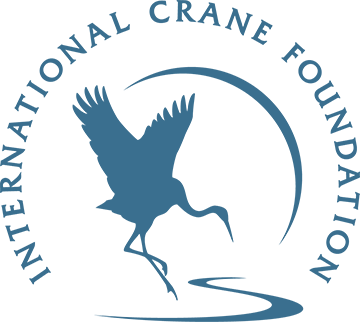More than 200 participants gathered in Guizhou Province, China, from March 10-12, 2023, for the 2021-2022 meeting of the China Wildlife Conservation Association’s United Crane Conservation Committee and the annual meeting of the Black-necked Crane Conservation Network.
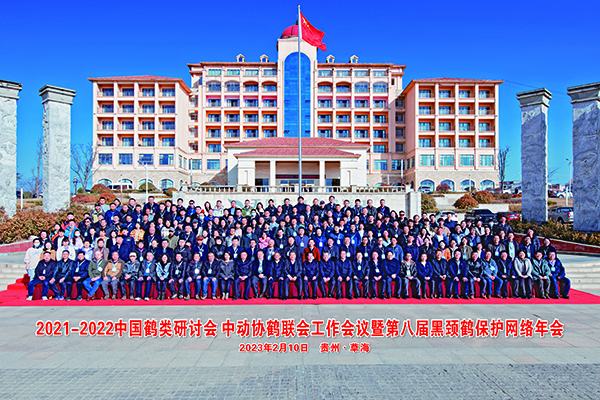
The three-day meeting included opening and closing sessions, group discussions, academic reports and an award session. During the opening ceremony, representatives from the National Forestry and Grassland Administration, Guizhou Forestry Bureau, China Wildlife Conservation Association and the International Crane Foundation gave opening remarks.
Yu Qian, China Program Director of the foundation, highly commended the crane conservation work in China and the cooperation achievements between the China Wildlife Conservation Association and International Crane Foundation over the past three years.”
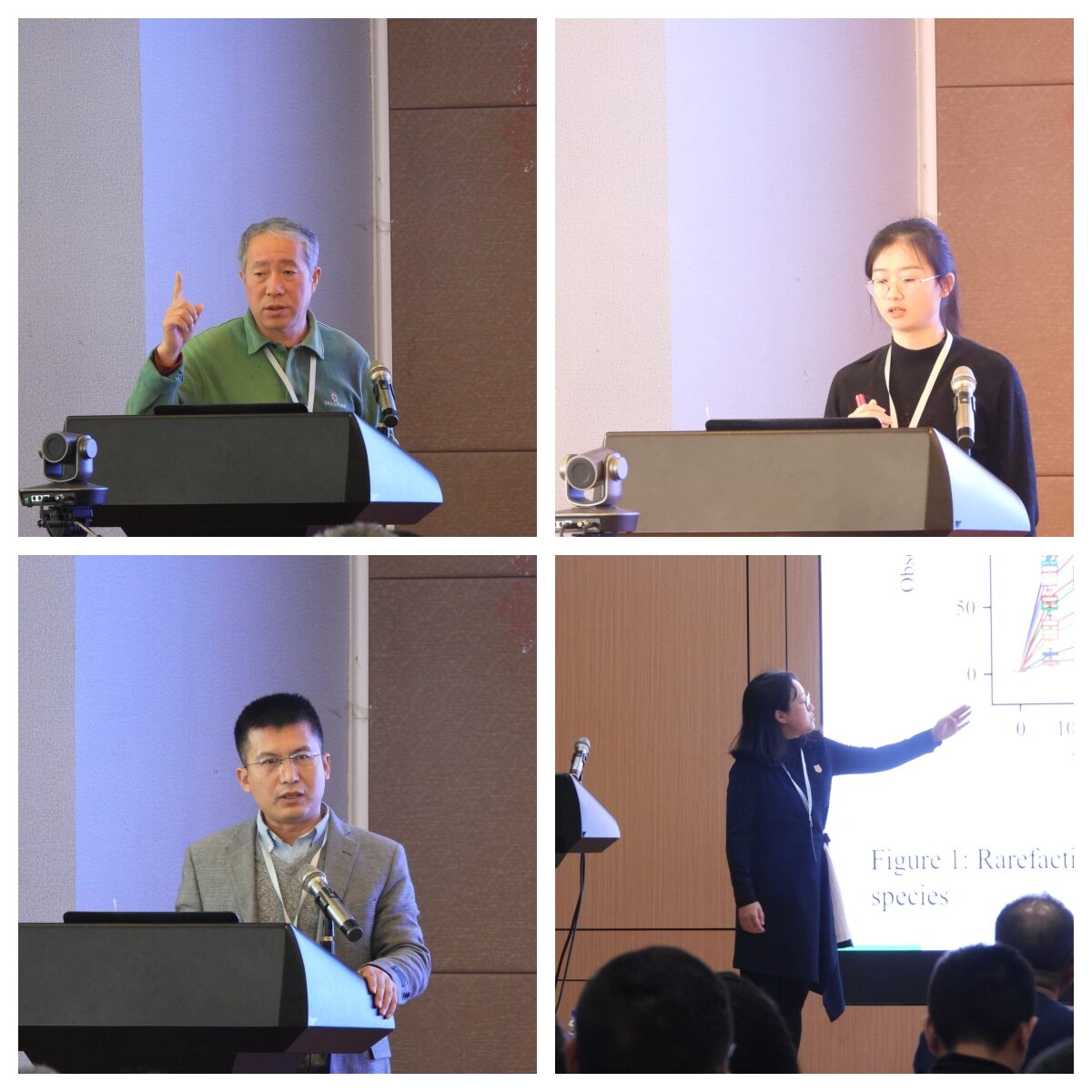
In the academic report session,
- Zhou Xiuqing, Division Chief of the Bird Conservation Office, Wildlife Conservation Department of the National Forestry and Grassland Administration, introduced bird conservation in China.
- Professor Qian Fawen, Secretary-general of the United Crane Conservation Committee, briefed the 2021-2022 wintering crane survey.
- Yang Xiaojun, a Kunming Institute of Zoology professor, analyzed the feasibility of a Sarus Crane reintroduction in China.
- Guo Yumin, Professor at Beijing Forestry University, shared his research according to tracking data of Siberian, White-naped, Black-necked, Hooded and Eurasian Cranes.
- Wu Heqi, a Researcher at Kunming Institute of Zoology, reviewed his trip and the International Black-necked Crane Conservation Workshop to Bhutan sponsored by the International Crane Foundation and other organizations.
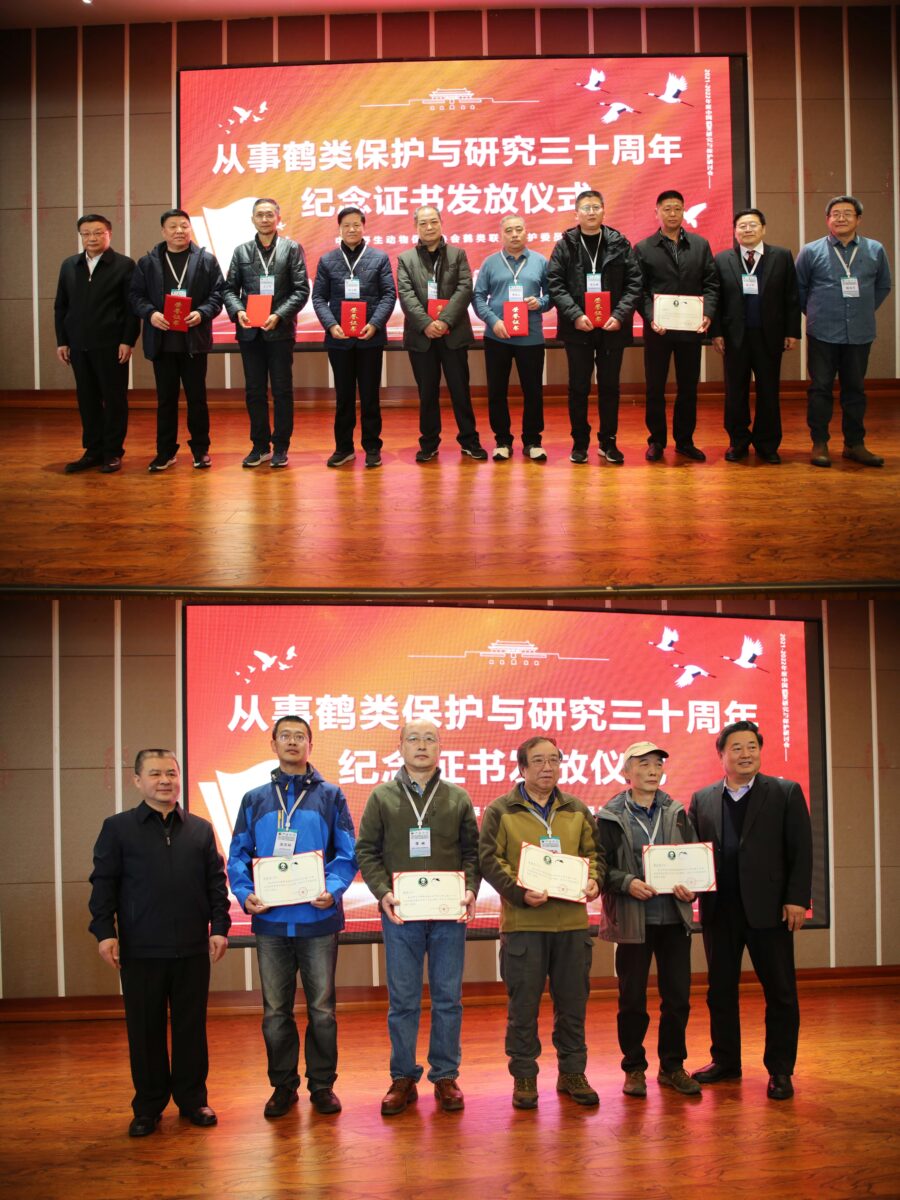
On March 11, four group discussions were conducted, including the Black-necked Crane Conservation Network, environmental education, crane research and monitoring, and crane habitat management.
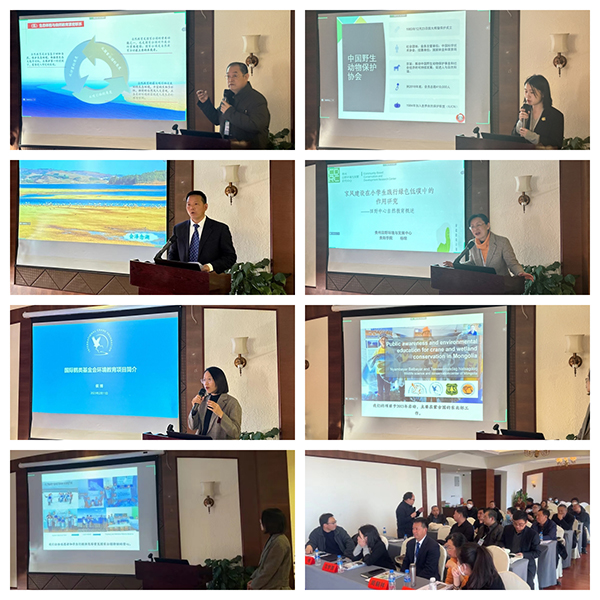
Dr. Nyamba Batbayar, Director of the Mongolian Wildlife Science and Conservation Center, shared a presentation about the Mongolian Crane Festival and cooperation with local communities, which helped residents raise their income and crane conservation awareness. Next, Ms. Maria Vladimirtseva and Ms. Maria Grigoreva from the Russian Kytalyk National Park shared their environmental education work in 2022. They organized different activities, such as a painting competition, an excursion with monitoring and an exhibition. Representatives from the Chinese nature reserves and nongovernmental organizations also shared their work on environmental education.
Ms. Hou Bo, China Program Coordinator of the International Crane Foundation, introduced the foundation’s work in environmental education in China for both local communities and the public. During the discussion, participants expressed their intention to cooperate with the International Crane Foundation in environmental education.
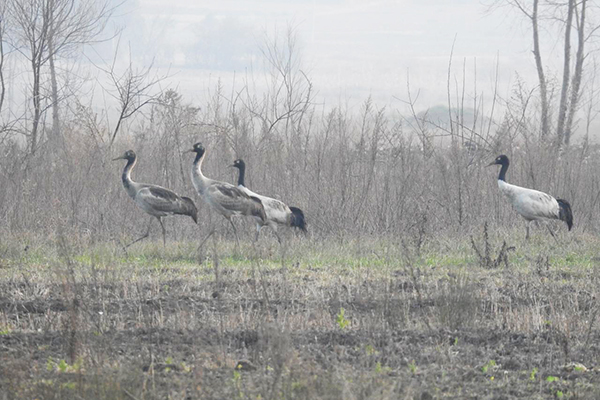
This two-day meeting was the first in-person meeting since COVID-19 with the most participants. It is a good opportunity for all stakeholders to gather and share experiences for crane conservation in China. “This is a good opportunity to learn from others. For our organization, we have a good relationship with local schools, which are interested in an environmental education course.” Said Bai Jin, Director of the Aeyi Environment Volunteer Association in Inner Mongolia, invited by the International Crane Foundation, “after this communication, we could develop a partnership to develop environmental education classes for local students.”
